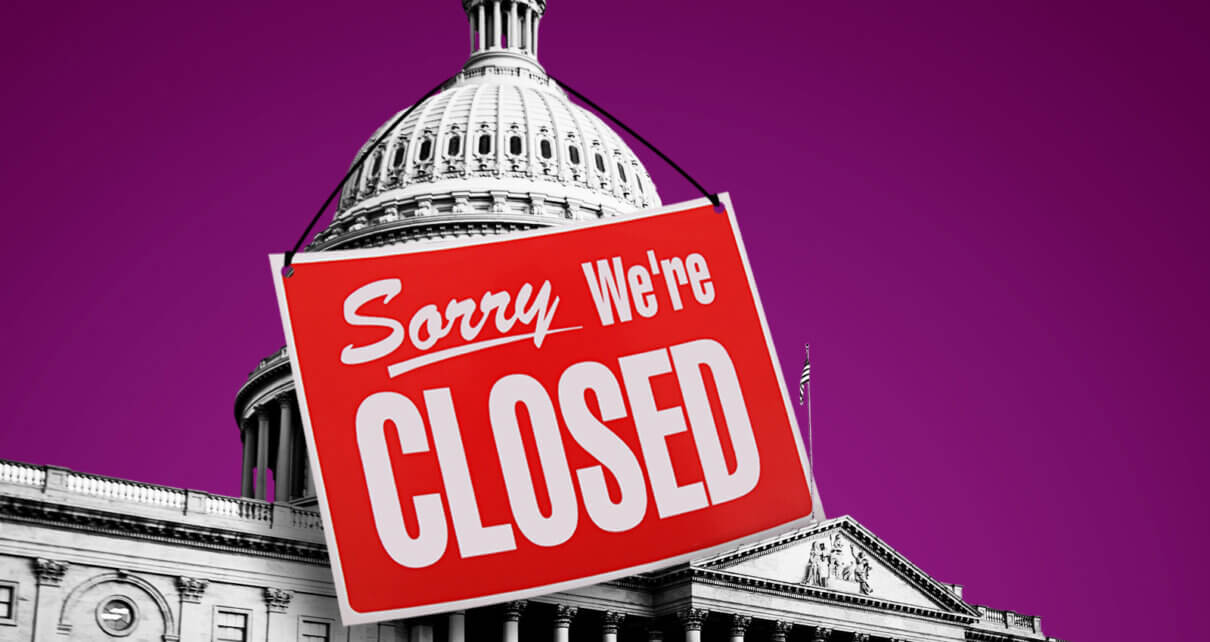As of Wednesday, Oct. 1, the federal government officially entered a shutdown after Congress failed to pass a temporary spending bill before the Sept. 30 deadline. The clash centered on healthcare subsidies and spending levels, which have forced hundreds of thousands of federal employees to work without pay and brought many government functions to a halt. This is the first shutdown since 2019 and comes at a politically volatile moment.
The fight in Washington stems from enhanced Affordable Care Act (ACA) premium tax credits, which were expanded in 2021 to make health coverage more affordable for millions of Americans. These subsidies were extended through 2025, but Republicans in Congress are refusing to continue funding them without significant spending cuts elsewhere. If the subsidies lapse, premiums for many could more than double, according to the Kaiser Family Foundation (KFF). House Democrats, including Rep. Greg Stanton of Arizona, have said they attempted to negotiate a bipartisan deal “to address the expiration of critical Affordable Care Act tax credits set to lapse at the end of 2025,” but would not accept cuts to other programs in exchange, according to a Stanton press release.
Republican leaders have framed the debate in terms of immigration and fiscal restraint. Speaker Mike Johnson accused Democrats of “restoring healthcare to illegal aliens” and called their refusal to accept the House proposal a “reckless decision” to shut down the government, according to a Congressional Press Release. However, experts and Democrats have pushed back, noting that undocumented immigrants have never been eligible for ACA subsidies. Instead, Democrats are seeking to restore eligibility for lawfully present immigrants, such as refugees and asylees, who were stripped of access in a recent spending bill, according to the Houston Chronicle.
House Minority Leader Hakeem Jeffries said Democrats are standing firm to “cancel the cuts, lower the cost, save health care,” framing the Republican position as one that would raise costs and destabilize the ACA system, according to AP News. The timing of the standoff is particularly significant because open enrollment for ACA plans begins on Nov. 1, meaning a prolonged shutdown could directly affect millions of people shopping for coverage, according to The Washington Post.
The immediate impacts of the shutdown are wide-ranging. According to the Congressional Budget Office, roughly 750,000 federal employees are being furloughed each day, with hundreds of thousands more to work without pay. National parks and museums have closed, certain food assistance programs, such as those administered by the FDA, are being delayed, and federal agencies are operating with reduced staff.
Education is among the most affected areas. The Department of Education’s contingency plan confirms that Pell Grants and Federal Direct Loans will continue, and FAFSA processing will proceed in the short term, according to a press release made by NASFAA. However, about 87% of the department’s non-loan staff are being furloughed, halting civil rights investigations into universities and pausing most new grantmaking, according to AP News. The American Council on Education warned that if the shutdown persists, regulatory delays and reduced research funding could become significant issues for colleges, according to ACE.
For colleges and universities, including Monmouth, the effects could quickly become personal. Although aid is still flowing, the National Association of Student Financial Aid Administrators warned that the reduction in federal staff could lead to delays in verifying student eligibility, potentially slowing aid disbursements, according to a NASFAA Policy Alert. The federal work-study program, which funds thousands of part-time jobs on campuses nationwide, is also at risk of disruption if the shutdown lasts several weeks, according to ACE.
Meanwhile, new federal research grants are frozen, posing challenges for graduate students and faculty who rely on agencies like the National Science Foundation and the National Institutes of Health to fund their work. Civil rights investigations tied to Title IX and disability discrimination have also stopped, delaying resolutions for students awaiting action.
For Monmouth students, the primary short-term concerns center on financial aid processing, campus research, and work-study pay. If the shutdown stretches beyond mid-October, those delays could become real very fast, affecting student budgets and campus programs.
For Monmouth students, awareness and impact vary widely. Sammy Desiano, a freshman business major, said the shutdown doesn’t directly affect him. “It wouldn’t affect me personally because I got no money from it. I don’t know many people who rely on FAFSA—also FAFSA doesn’t give that much, $6,000 at most,” he said. While he acknowledged the broader consequences, he added, “I think it affects their parents because they aren’t getting paid. But it doesn’t affect me.”
For others, however, the stakes feel more personal. “Monmouth is expensive. [Financial aid] allows some leverage to attend the school, especially with the high tuition prices,” said Moises Meza, a senior communications major. He explained that while the aid he receives is “tiny compared to the size of tuition,” delays or disruptions would most likely add obstacles to his college life, and pointed out that shutdown impacts can extend beyond higher education. “I’ve heard it’ll affect the educational system as a whole because of grants, research, etc.—not even just college but K–12 as well, like EOF programs,” he said.
In short, Washington’s budget battle may feel distant, but its consequences have a way of trickling down to campuses. For Monmouth students, the next few weeks could determine whether this is just another political standoff or something that directly impacts financial aid, jobs, and everyday campus life.




